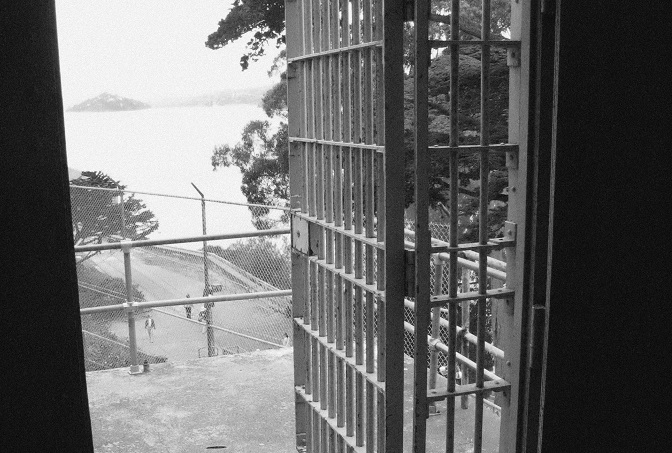Three recent state bills to restrict private prisons from housing illegal aliens are a new step by open-borders advocates to thwart enforcement of our immigration laws and shield illegal aliens from deportation.
Illinois effectively banned all private immigration detention in June. When he signed House Bill (HB) 2040, Governor J.B. Pritzker (D) made no secret of the fact that the bill was to oppose President Trump’s immigration policies. He hailed the measure as part of making the Illinois a “firewall” against the president’s attempts to enforce the law.
The California legislature passed a ban on private prisons last month, Assembly Bill (AB) 32. Governor Gavin Newsom (D) signed the legislation on October 11, proclaiming that “[t]hese for-profit prisons do not reflect our values[.]” Under AB 32, no new private detention contracts can be signed, or old ones renewed, after January 1, 2020, and all private facilities will have to completely wind up their operations by 2028.
New York hasn’t gone quite as far as the other two states yet. It banned private prison facilities from contracting with the state and with local governments in 2007, but hasn’t banned private detention facilities that contract exclusively with federal authorities. However, a bill passed the New York State Senate recently to prohibit banks chartered in the state from financing private prisons. Given just how many financial institutions are based in New York, this could mean politicians may export their extreme open-borders policies all across the country, by cutting off access to credit by private contractors.
Smeared as the villains in all this are Immigration and Customs Enforcement (ICE) and the private prison contractors, especially the largest two, GEO Group and CoreCivic. The open-borders lobby and their friends in the state legislatures rail on them as “profit[ing]from human suffering.” Moreover, the private prisoner contractors have lost contracts that are in no way related to immigration in places like Denver simply because they run immigration detention facilities elsewhere. But what they really do is provide an essential service, particularly when ICE has extremely limited detention bed space of its own.
The services offered by private prison contractors are much needed nowadays as President Trump seeks to finally end the practice of “catch-and-release.” This process allows illegal aliens to disappear into the interior of the United States while they wait for their immigration hearing, often times years later. Many never show up for those hearings
As former Acting ICE Director Tom Homan said, when he ran the agency, “our most expensive detention beds were in facilities that ICE owned. Using outside contractors that run detention facilities as their core business function not only saves millions [of]dollars in taxpayer funds – it increases the quality of care that those being detained receive. … privately run detention facilities where ICE houses these detainees help to keep our communities safe and literally save lives.”
Restricting private immigration detention doesn’t just endanger public safety and cost taxpayers money. Responding to California, GEO Group made clear it also thinks these bills run afoul of federal law and as such would fail a court challenge, saying “[s]tates cannot lawfully pass legislation mandating the closure of federal facilities that displease them on the basis of ideological differences[.]”
Most state legislatures will convene in January for their 2020 sessions, and in some of them bills are already being pre-filed. Supporters of immigration enforcement should anticipate private-prison bans and restrictions springing up all over the country next year and be prepared to stop them.





1 Comment
Pingback: States Targeting Private Prisons Are Aiming to Protect Illegal Aliens – The Importance of Business